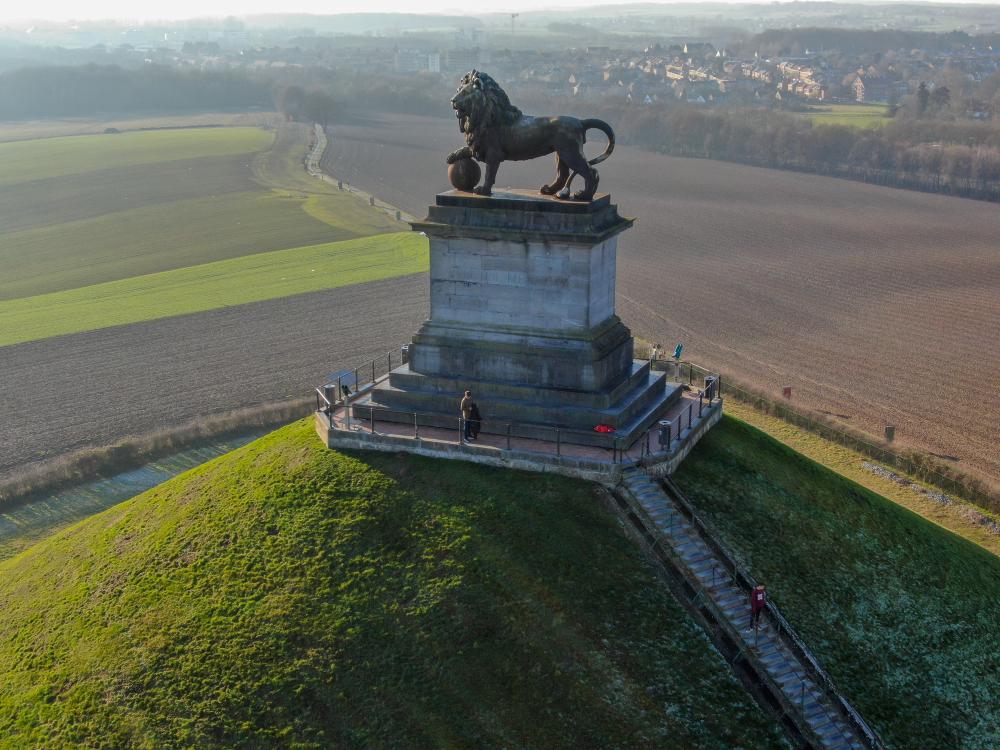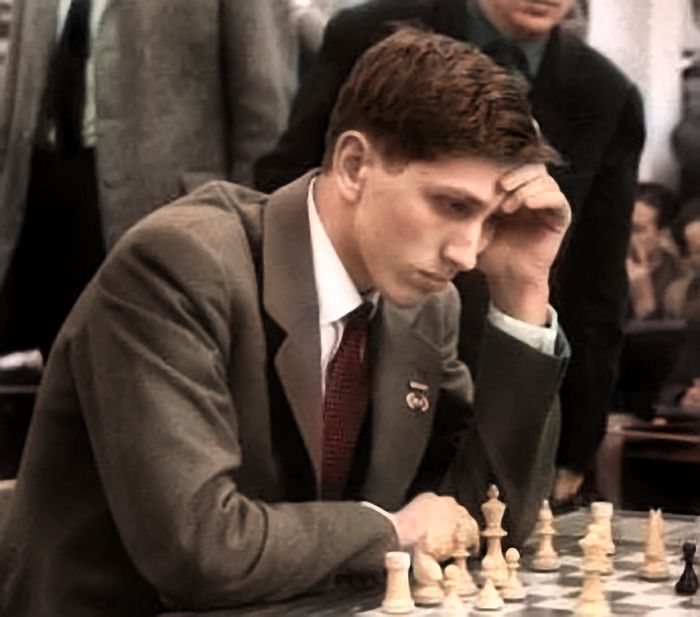
Decisive Moments In Chess: Bobby Fischer's Waterloo
Destiny makes its urgent way to the mighty and those who do violent deeds.
This is the beginning of Stefan Zweig's famous Die Weltminute von Waterloo (The World Minute of Waterloo). While this short novel describes the decisive moment of the historic battle of Waterloo, my inner chess geek cannot help but see the uncanny similarity with a historic chess battle between Bobby Fischer and Bent Larsen. It was one of Fischer's last defeats before his vertical ascent to the chess summit.
This is how it started in Waterloo:
From eleven to one o’clock, the French regiments storm the heights, take villages and military positions, are thrown back, storm into the attack once more.
This is how it looked on the chessboard:
With his last move, Black created a threat of 14...b4, kicking the knight on c3 and winning the e4 pawn. Pretend that it is your tournament game.
What would you play here as White?

Bobby Fischer via Wikipedia.
Meanwhile, let's get back to the Battle of Waterloo:
Both armies are tired to death, both commanders are uneasy. They both know that the victory will go to whichever of them gets reinforcements first, Wellington from Blücher, Napoleon from Grouchy. Napoleon keeps nervously raising his telescope, he keeps sending more orderlies out. If his marshal arrives in time, the sun of Austerlitz will shine over France again.
Now, when you know that both commanders are waiting for reinforcements to attack the enemy first, it is quite obvious what White should do in Fischer's position:
Is it what happened in Waterloo? No!
If Grouchy could pluck up his courage now, if he could be bold enough to disobey [Napoleon's] order out of belief in himself and the visible signs he sees, France would be saved. But a natural subaltern will always obey the orders he was given, rather than the call of destiny. And so Grouchy firmly declines to change their plan. It would be irresponsible, he says, to split up such a small corps even more.
Just like Grouchy, Fischer thought it was irresponsible to give up his central pawn and instead of 14. h5!, he played a passive move: 14. f3?
Here is what Garry Kasparov thinks about it in his excellent book, My Great Predecessors: "For Fischer this position was a new one and, more important, too ragged, too unclear. He did not like ragged positions, and therefore he simply defended the pawn. However, from this moment Black's attack begins developing more quickly than his opponent's."
Kasparov goes even further, claiming,"The paradoxical thing is that today 14. h5! would be played by any club player."
I think this is too harsh towards Fischer and I need the readers' help. In the beginning of the article I asked what would you play if that position happened in your tournament game. Would all of you play 14. h5 or would some prefer to protect the central e4 pawn by playing 14. f3, just like Fischer did?
It is too easy to criticize our protagonists after the fact. Imagine for a second what was going on in Grouchy's head at the decisive moment of the battle. If he disobeys Napoleon's order and something goes wrong, then he is dead for sure. From the other side, no one can really blame him for following the commander's order!
Yes, Fischer didn't like irrational positions, but he liked to give up his pawns even less. He preferred to collect his opponents' pawns, even if it put him in a serious danger. That's how he won numerous games in the "poisoned pawn variation" of the Sicilian Najdorf:
They say that hindsight is 20/20. It is easy to criticize Fischer's move 14. f3 post factum, but this move is a cornerstone of White's strategy in the Sicilian English attack, like in the following game:
The result of Grouchy's mistake is well known:
The Prussian cavalry charge the exhausted and shattered French army. The mortal cry goes up, “Sauve qui peut!” Within a few minutes the Grande Armée is nothing but a torrential stream of terrified men in flight, carrying everything along with it, even Napoleon himself. The cavalry, spurring their horses on, make their way into this swiftly retreating stream, easily fishing Napoleon’s carriage, the army treasury and all the artillery pieces out of that screaming foam of fear and horror.
It wasn't any better for Fischer:
It is amazing how just one hesitant move, 14. f3, could ruin the whole game, but this is what usually happens in razor-sharp positions where both opponents attack each other on the opposite sides of the board.
Two years after this game, Fischer became world champion, but what happened to Grouchy?
Surrounded by superior strength five times greater than his own, he leads his troops back again right through the middle of the enemy—a masterly tactical achievement—without losing a single cannon or a single man, and saves its last army for France and the empire. But when he comes home there is no emperor to thank him, and no enemy against whom he can lead the troops. He has come too late, for ever too late, and even if outwardly his life takes an upward course, if he is confirmed in his rank as a marshal and a peer of France, and he proves his worth manfully in those offices, yet nothing can buy him back that one moment that would have made him the master of destiny, if he had been capable of taking it.



